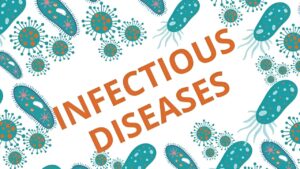
Infectious diseases have been a significant source of morbidity and mortality throughout
human history. From the bubonic plague to the 1918 influenza pandemic to the more
recent outbreaks of Ebola and Zika viruses, infectious diseases have had devastating
consequences for individuals and communities. In the face of evolving pathogens and
emerging infections, infectious diseases specialists play a critical role in the diagnosis,
management, and prevention of these diseases.
Infectious diseases specialists are medical doctors who have received specialized training
in the field of infectious diseases. They are experts in the diagnosis, treatment, and
prevention of infections caused by bacteria, viruses, parasites, and fungi. These specialists
play a crucial role in the healthcare system by providing care to patients with infectious
diseases and contributing to public health efforts to control and prevent the spread of
these diseases.
One of the key roles of infectious diseases specialists is to diagnose infections accurately.
Infectious diseases can present with a wide range of symptoms, making them challenging
to diagnose. Infectious diseases specialists have the knowledge and expertise to identify
the causative agent of an infection and determine the most appropriate treatment. They
use a variety of diagnostic tools, such as laboratory tests, imaging studies, and clinical
evaluations, to make an accurate diagnosis and develop a treatment plan tailored to the
individual patient.
Infectious diseases specialists also play a crucial role in the management of infections.
They are responsible for developing treatment plans that address the specific infection and
the patient’s overall health status. This may involve prescribing antimicrobial medications,
antiviral agents, or antifungal drugs, depending on the type of pathogen causing the
infection. Infectious diseases specialists monitor the patient’s response to treatment and
make adjustments as needed to ensure optimal outcomes.
In addition to providing care to individual patients, infectious diseases specialists play a
vital role in public health efforts to control and prevent infectious diseases. These
specialists are trained to conduct surveillance activities, investigate outbreaks, and
develop strategies to prevent the spread of infections in the community. They collaborate
with public health officials, healthcare providers, and community organizations to
implement infection control measures and promote vaccination programs to protect the
health of the population.
With the emergence of new infectious diseases and the increasing threat of antimicrobial
resistance, the expertise of infectious diseases specialists is more critical than ever.
Infectious diseases specialists play a key role in responding to emerging infectious threats,
such as the COVID-19 pandemic, by developing guidelines for infection control, conducting
research on new pathogens, and participating in clinical trials to evaluate treatments and
vaccines. Their expertise is essential in guiding public health responses and mitigating the
impact of infectious diseases on individuals and communities.
Infectious diseases specialists also play a crucial role in addressing the global challenge of
antimicrobial resistance. Antimicrobial resistance occurs when bacteria, viruses,
parasites, or fungi develop the ability to resist the effects of medications that were
previously effective in treating infections. This can lead to treatment failures, increased
morbidity and mortality, and higher healthcare costs. Infectious diseases specialists are at
the forefront of efforts to combat antimicrobial resistance by promoting antimicrobial
stewardship practices, conducting research on resistance mechanisms, and developing
new treatment strategies to address resistant infections.
The work of infectious diseases specialists is essential in protecting individuals and
communities from the devastating impact of infectious diseases. By diagnosing infections
accurately, managing treatment effectively, and contributing to public health efforts, these
specialists play a vital role in controlling the spread of infections and improving patient
outcomes. As the threat of infectious diseases continues to evolve, the expertise and
dedication of infectious diseases specialists will be crucial in safeguarding the health and
well-being of individuals worldwide.
In conclusion, infectious diseases specialists are indispensable healthcare professionals
who play a critical role in the diagnosis, management, and prevention of infectious
diseases. Their expertise and commitment to advancing the field of infectious diseases are
essential in addressing the ongoing challenges posed by emerging infections, antimicrobial
resistance, and global health threats. By supporting the work of infectious diseases
specialists and investing in efforts to strengthen healthcare systems, we can better protect
individuals and communities from the devastating impact of infectious diseases.